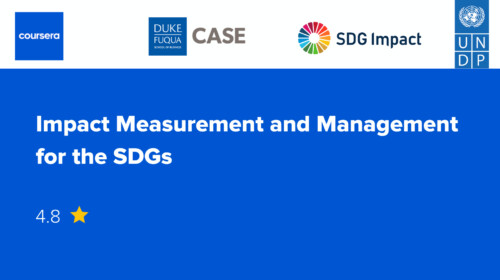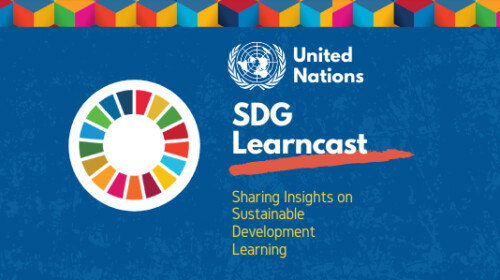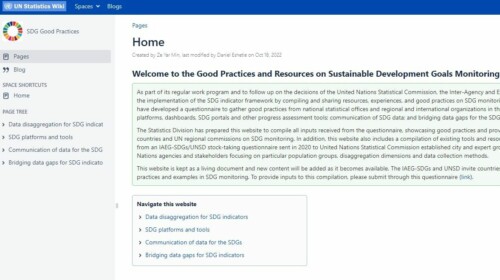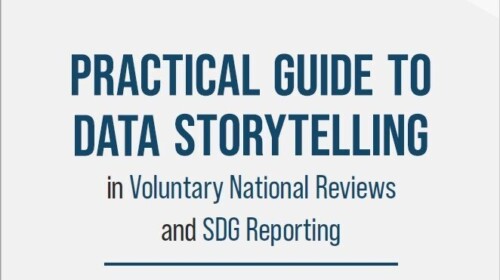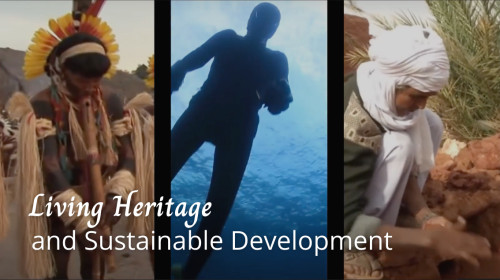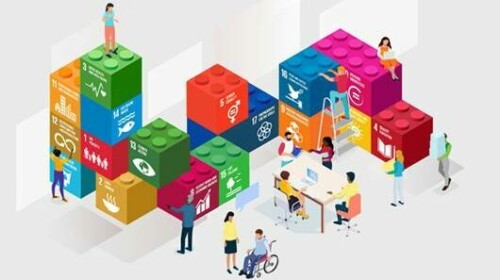To fulfill the goals of both the 2030 Agenda and the Paris Agreement, we need a renewed understanding of governance and a better grasp of emerging governance trends.
Would you like to know more about some of the latest trending topics on governance for sustainable development, but you don’t have time to do so?
In this blog post we have compiled some videos, publications and articles from our 2023 UN Summer Academy Trend Talk speakers.
Leadership and diplomacy
1. Video: Political Leadership Incubators (PLI) by Kimberly McArthur
Can we train politicians to become effective leaders before they take up the job? In this Trend Talk, Kimberly believes we can, and we should. She also highlights the disparity in resources between political and private sector leadership training, and advocates for more resources for public-sector leaders to develop ethical, courageous politicians, focusing on marginalized communities. Kimberly strongly believes in the power of political leadership incubators (PLI) that assist in recruiting and training potential leaders to achieve a better, more sustainable future (also read: Better Leaders, Better Democracies, May 2022).
2. Video: Science diplomacy for the future by Maricela Muñoz
Rapid technological advancements necessitate anticipatory science diplomacy and use that to fast-track achieving the Sustainable Development Goals (SDGs). Science diplomacy is the use of scientific international collaborations to address common global issues. By focusing on emerging scientific and technological trends, we can create actionable strategies for global stakeholders, including in areas of quantum science, neurotechnology, and decarbonization (also read: Scientific Anticipatory Briefs, GESDA).
Climate innovation, just transition, and digital currencies
3. Video: Climate-resilient infrastructure and innovation by Andy Bochman
The climate crises are affecting our infrastructure, and for civilization to keep on running, we need to defend our physical facilities such as buildings, roads, and power supplies from floods, wildfires, and extreme weather events. These calamities are happening more frequently and on a larger scale. In this Trend Talk, Andy presents the Climate Resilience Maturity Model (CRMM), a tool to rate utilities and other essential service providers in cities for their resilience to climate change impacts. CRRM shows how homeowners, local governments, and companies facilitate proactive adaptation and resilience planning, offering a system for tracking progress and motivating action.
The model evaluates entities based on governance, planning, community collaboration, adaptation actions, customer engagement, and equity that help address planning and act proactively and not just waiting for crises to happen before reacting and responding The model emphasizes the need for infrastructural resilience in the face of mounting climate challenges and provides approaches on how we can achieve it to make living safer for everyone (also read: Ensuring resilient clean energy infrastructure, Atlantic Council).
4. Video: A just and fair clean energy transition by Dan Dalabajan
In this Trend Talk, Dan emphasizes the importance of a fair and fast transition to clean, renewable energy in addressing climate change. He argues that we need to consider where raw materials for green technologies come from, as many are produced in lower-income countries. The exploitation of these resources could negatively impact local communities and exacerbate existing inequalities if not done fairly. He also discussed the complexity of phasing out fossil fuels, considering the economic and social impacts on communities reliant on these industries. Lastly, he highlighted the importance of good governance and active citizenship in ensuring the transition is both fair and fast (also read: Towards a Just Energy Transition: Implications for communities in lower- and middle-income countries).
5. Video: Digital currency governance by George Coxon
George outlines five ways digital currencies can tackle financial hurdles: enhancing accessibility, reducing transaction costs, promoting financial empowerment, increasing transparency and trust, and stimulating economic growth. However, she also warns about the associated risks, critiquing Bitcoin's adoption in El Salvador due to inefficiencies and high energy usage. She urges a more nuanced conversation around cryptocurrencies, emphasizing the importance of distinguishing between different technologies. George maintains that the Nano Foundation prioritizes solving real-world issues, focusing on creating economic equity rather than solutions for non-existent problems (also read: Digital Currency Global Initiative, ITU and Stanford University).
Citizenship assessments and sustainable reporting
6. Video: African governance through citizen assessments by Emilia Siwingwa
Good governance is the provision of political, social, economic, and environmental goods that citizens have the right to expect from their state and that the state has a responsibility to deliver to their citizens. Active citizenship, according to Emilia, is crucial to good governance and a functioning democracy. She asserted that every citizen has a role to play in governance, but in several cases, people do not know or understand their rights within governance structures. To understand the governance landscape in Africa, she presented the Ibrahim Index on African Governance, which is a tool based on data that aids policymakers in making better decisions and enabling citizens to hold policymakers accountable (also read: IIAG Index Report and Key Findings).
7. Video: Using AI to help companies transition to Net-Zero by Toby Sparwasser Soroka
One of the significant challenges faced by companies in transitioning to Net Zero is the management of unstructured data. With AI, it becomes possible to search, analyse, and make sense of large volumes of unstructured data. As 90 per cent of all Environmental, Social, and Governance (ESG) data lives in unstructured documents, AI can help make sense of this data, forecast future trends, and inform strategies.
In this Trend Talk, Toby discusses the role of artificial intelligence and natural language processing in supporting sustainability initiatives, with a specific focus on sustainability regulation within the European Union. While AI is useful in making sense of unstructured data, there's a need to ensure that the process is transparent and free from bias. This involves making sure that AI is not just replacing human analysts but assisting them, hence the concept of AI as a 'co-pilot for sustainability.' The future of sustainability reporting, as presented, is not a checklist or a simple task. It requires a deep understanding of the models and regulations. It's not about ticking off boxes but about having learning moments to better understand sustainability initiatives and how to report them (also read: 100 Artificial Intelligence Approaches for Sustainable Development and the Benefit of Humanity, UNESCO and IRCAI)


